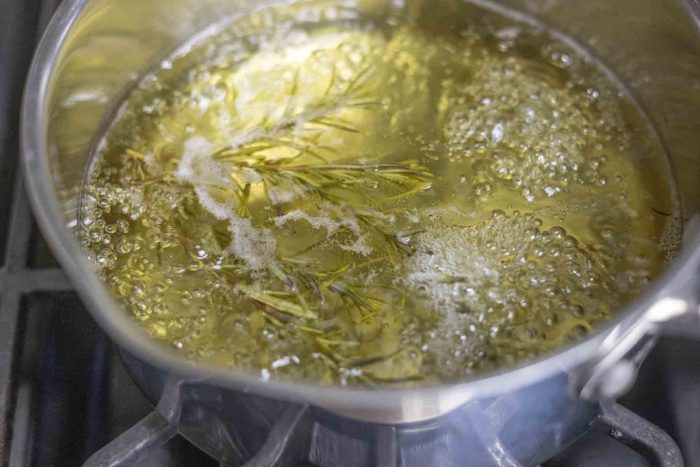
Rosemary oil is not only aromatic and soothing but also comes packed with benefits for hair and skin health, as well as providing a delightful flavor enhancer in cooking. Making your own rosemary oil at home is straightforward and doesn’t require any complicated equipment. Here’s a quick and easy guide to help you create this wonderful herbal oil in your kitchen.
Why Make Rosemary Oil?
Rosemary oil is celebrated for its ability to stimulate hair growth, improve memory, and enhance skin health. It also has anti-inflammatory and antioxidant properties. By making your own, you control the ingredients and the strength of the oil, ensuring a natural and potent product.
Ingredients and Materials Needed:
Fresh rosemary sprigs
A carrier oil (like olive oil or sweet almond oil)
A glass jar with a tight lid
A strainer or cheesecloth
A saucepan or slow cooker
Step-by-Step Guide to Making Rosemary Oil:
1. Prepare the Rosemary: Begin by washing your rosemary sprigs under cold water to remove any dirt or impurities. Pat them dry completely; moisture can cause the oil to become rancid over time.
2. Heat the Carrier Oil: Pour your chosen carrier oil into a saucepan or slow cooker. Heat the oil on low heat until it is warm but not boiling.
3. Add the Rosemary: Once the oil is warm, add the dry rosemary sprigs. If using a saucepan, let the oil simmer very gently on the lowest heat setting for 2-3 hours. If you’re using a slow cooker, you can leave it covered on low for 3-4 hours.
4. Strain the Oil: After the heating process, remove the rosemary sprigs and strain the oil through a cheesecloth or fine strainer into a glass jar to remove any rosemary leaves or debris.
5. Store the Oil: Seal the jar tightly and store your homemade rosemary oil in a cool, dark place. It can typically last for up to a month when stored properly.
Uses for Your Homemade Rosemary Oil:
In the kitchen: Use it as a finishing oil for dishes that could benefit from its aromatic flavor.
For hair care: Massage into the scalp to promote hair growth and reduce dandruff.
For skin care: Apply it to the skin to help improve circulation and reduce puffiness.
Conclusion
Making rosemary oil at home is a rewarding and simple process that yields a versatile and beneficial product. Whether you’re using it to enhance your cooking, nourish your hair, or soothe your skin, rosemary oil is a wonderful, natural addition to your daily routine.





